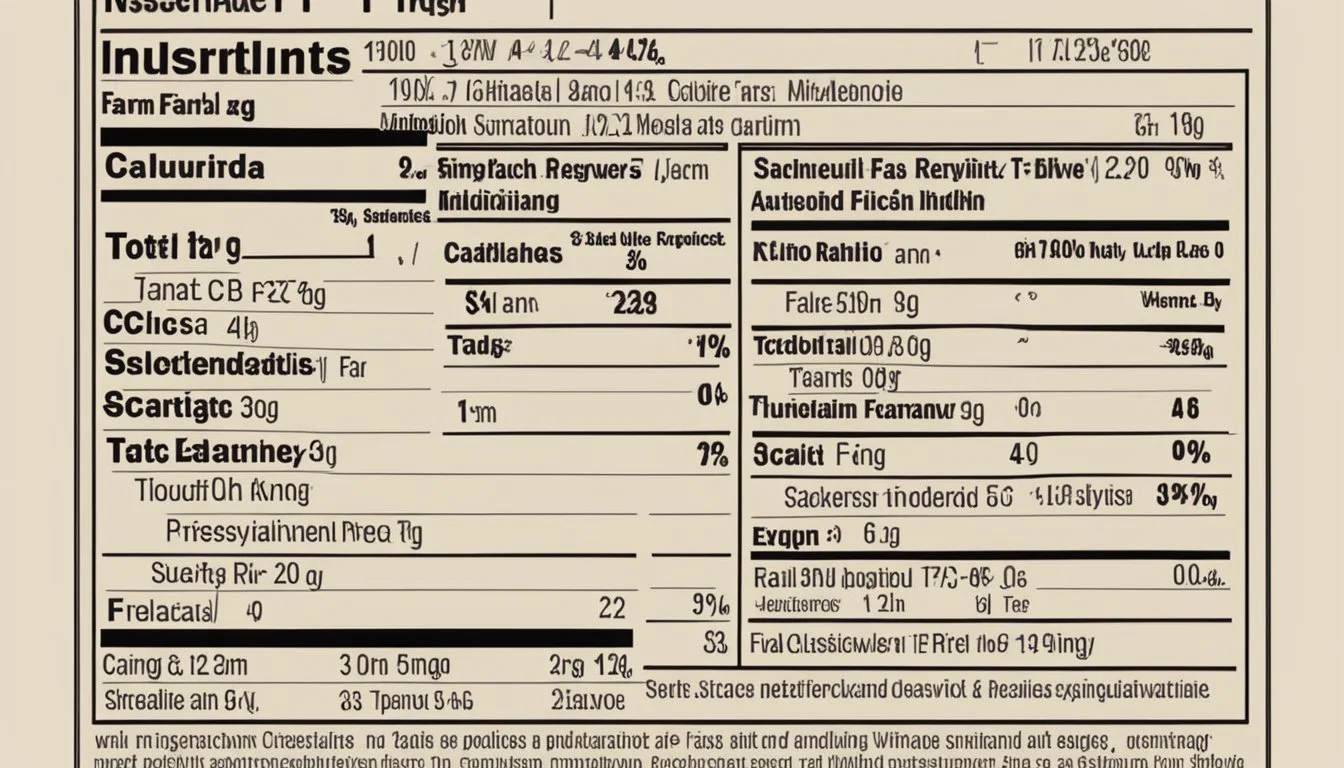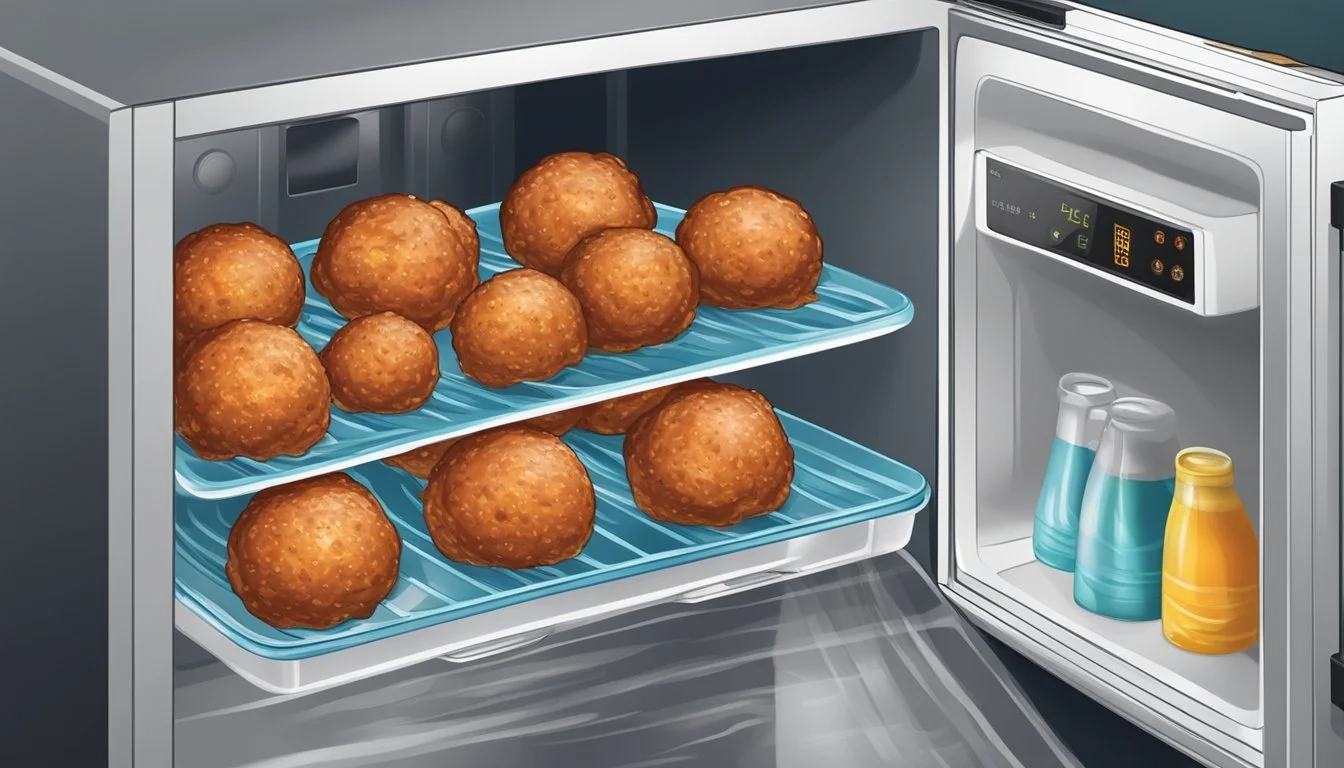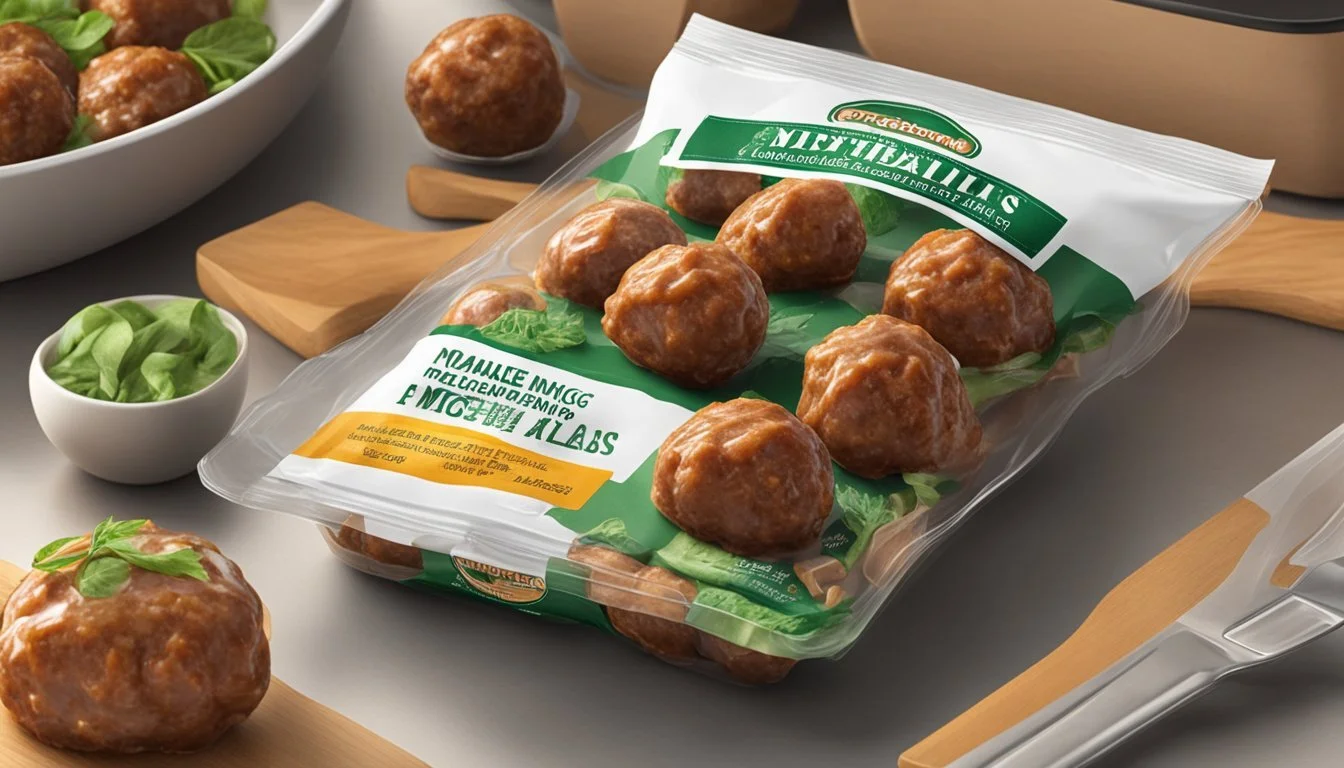How Long Do Farm Rich Meatballs Last?
Shelf Life and Storage Tips
Farm Rich meatballs are a convenient and tasty option for many households, known for their rich flavor and high protein content. When considering how to store these meatballs, both refrigeration and freezing are common methods. Properly stored, cooked Farm Rich meatballs will maintain their best quality for 3 to 4 months in the freezer and can remain safe indefinitely if kept constantly at 0°F.
If you plan to consume them in a shorter timeframe, refrigerating is also an option. Typically, cooked meatballs can last for about 3 to 4 days in the refrigerator. It's important to note that the clock starts ticking from the moment they are defrosted. Keeping the meatballs at a safe temperature is crucial to maintaining their quality and ensuring they are safe to eat.
For optimal freshness, always make sure to store Farm Rich meatballs properly and follow any specific heating or storage instructions provided on the packaging. These meatballs offer a delicious and versatile addition to various meals, making it essential to handle them correctly to enjoy their homemade flavor and high protein benefits.
Understanding Meatballs as a Protein Source
Meatballs offer a versatile and satisfying source of protein. Whether made from beef, pork, chicken, or soy, meatballs can fit well into various diets.
For those seeking classic flavors, beef and pork meatballs are popular options. Beef meatballs provide a robust, hearty taste, while pork can offer a slightly sweeter profile.
Chicken meatballs are another excellent choice for those looking to reduce fat intake while maintaining good protein levels. They have a milder flavor, making them adaptable to different cuisines.
Soy meatballs cater to vegetarians and those looking for plant-based options. They can still deliver a substantial amount of protein and are often seasoned to mimic the flavors of their meat-based counterparts.
Here are approximate protein contents per serving:
Type Protein Content (per serving) Beef Meatballs 18-20g Pork Meatballs 16-18g Chicken Meatballs 14-17g Soy Meatballs 10-15g
Cooking methods can also influence the protein content. Baking often retains more protein compared to frying.
Meatballs made with additional ingredients like breadcrumbs or cheese may have adjusted protein levels. These ingredients can enhance flavor but may also affect the overall nutritional profile.
Whether for a main dish or an appetizer, meatballs serve as a reliable protein source across different dietary preferences and cuisines.
Ingredients and Preservatives in Farm Rich Meatballs
Farm Rich Meatballs are made with a variety of ingredients and preservatives to ensure quality and flavor. These ingredients differ slightly across different types of meatballs offered by Farm Rich, such as Homestyle, Swedish, Italian Style, and 100% Beef Meatballs.
Ingredients:
Meats: The meatballs primarily contain beef, pork, and sometimes chicken.
Soy: Textured soy flour and soy protein concentrate are included for added protein and texture.
Flour: Bread crumbs made from wheat flour, salt, and yeast are used for binding.
Seasonings: Spices such as black and white pepper, and parsley flakes are added for flavor.
Other Additives: Onions, salt, sugar, and natural flavorings enhance the taste.
Preservatives:
Sodium Polyphosphate: This preservative is used to maintain moisture and improve texture.
Dextrose and Corn Syrup Solids: These are added for slight sweetness and as preservatives.
Maltodextrin: Used as a thickener and preservative.
Example Ingredients List:
Type Ingredients Swedish Style Meatballs Beef, pork, water, textured soy flour, bread crumbs, soy protein concentrate, dextrose, spices 100% Beef Meatballs Beef, water, textured soy protein, onions, defatted soy flour, soy protein concentrate, salt, sugar
This combination of meats, plant-based proteins, and preservatives ensures that Farm Rich Meatballs are flavorful, have a good texture, and can be stored for longer periods without losing quality. The use of various seasonings and additives also helps in creating a rich taste profile that can be enjoyed in different recipes.
Proper Storage Conditions for Optimal Shelf Life
To ensure Farm Rich meatballs stay fresh and safe to eat, it's crucial to follow proper storage methods. Key factors include maintaining the right temperature and using appropriate containers.
Freezing Uncooked Meatballs
For uncooked meatballs, freezing is the best way to extend their shelf life. Place the meatballs on a baking sheet lined with parchment paper in a single layer to prevent them from sticking.
Once frozen, transfer them to freezer bags or airtight containers. Label the bags with the date to keep track of their age.
Wrapping them in aluminum foil before placing them in the bag adds an extra layer of protection against freezer burn. Ensure the freezer is set to 0°F (-18°C) or lower. Properly stored, uncooked meatballs can last up to three months in the freezer.
Refrigerating Cooked Meatballs
Cooked meatballs need to be stored in the refrigerator if they will be consumed within a short period. After cooking, allow the meatballs to cool to room temperature but do not leave them out for more than two hours.
Transfer the cooled meatballs to airtight containers or wrap them tightly in plastic wrap to maintain their moisture and prevent contamination.
Store at a consistent temperature of 40°F (4°C) or lower. Under these conditions, cooked meatballs maintain their quality and safety for 3-4 days.
Storing Homemade Meatballs
Storing homemade meatballs correctly is vital to keep them fresh. Uncooked homemade meatballs should be frozen using similar techniques as for store-bought ones. Use freezer bags or airtight containers and label them with the preparation date.
For cooked homemade meatballs, let them cool and then refrigerate them in airtight containers. Considering homemade meatballs often lack preservatives, consume within 3-4 days if refrigerated.
For longer storage, freeze cooked meatballs by wrapping them in aluminum foil and placing them in a freezer bag. They can last up to three months in the freezer. To use, simply thaw overnight in the fridge before reheating.
Maximizing Freshness and Preventing Spoilage
Proper handling and storage of Farm Rich Meatballs are essential to ensure their freshness and extend their shelf life while preventing spoilage. Focus on recognizing signs of spoilage, avoiding cross-contamination, and understanding expiration dates to maintain quality.
Identifying Freshness and Spoilage
To assess the freshness of Farm Rich Meatballs, look for clear signs. Fresh meatballs should have a pleasant, neutral smell. If there is any sour or off smell, it indicates spoilage. Additionally, fresh meatballs are firm and moist, whereas spoiled ones may be slimy or sticky to the touch. Check for any discoloration as an indication of spoilage.
Preventing Cross-Contamination
Preventing cross-contamination is vital in maintaining the freshness and safety of meatballs. Store them in sealed containers to avoid contact with other foods. Always use clean utensils and surfaces when handling meatballs. Ensure raw and cooked meatballs are kept separate to prevent bacterial transfer. This practice keeps meatballs safe and reduces the risk of foodborne illnesses.
Understanding Expiration Dates
Knowing expiration dates helps in managing the shelf life of Farm Rich Meatballs. Check the packaging for the "use by" or "best before" date. Always consume the meatballs before this date for optimal freshness. Once the package is opened, store any unused portions in the refrigerator and consume within a few days. Label the container with the date it was opened to keep track.
Thawing and Reheating Meatballs Safely
Properly thawing and reheating meatballs is essential for maintaining their quality and ensuring food safety. Follow these recommended practices to avoid bacterial growth and enjoy safe, delicious meatballs.
Thawing Frozen Meatballs
Refrigerator Method:
Place frozen meatballs in a bowl or container to catch any drips. Let them thaw in the refrigerator for 24-48 hours. This slow thawing method keeps the meatballs at a safe temperature, reducing the risk of bacterial growth.
Cold Water Method:
Place meatballs in a sealed zip-top bag, removing excess air. Submerge the bag in a bowl of cold water, changing the water every 30 minutes until thawed. This method thaws meatballs more quickly while keeping them cold and safe.
Microwave Method:
Use the microwave's defrost setting for a quicker thaw. Place meatballs on a microwave-safe plate and follow the microwave's instructions for defrosting meat. Be cautious, as some parts may start to cook during this process.
Reheating Methods and Safety Tips
Microwave:
Place thawed meatballs on a microwave-safe plate. Cover with a microwave-safe cover to retain moisture. Heat on medium or reheat setting in 1-minute intervals, rotating the meatballs halfway through, until they are heated evenly and thoroughly.
Oven:
Preheat the oven to 375°F (190°C). Place meatballs on a baking tray, ensuring they are in a single layer. Cover with foil to prevent drying out. Bake for 15-20 minutes or until hot throughout. Using the oven helps achieve even heating.
Stovetop:
Heat a skillet over medium heat. Add a small amount of cooking oil or sauce. Place the meatballs in the skillet and cover. Stir occasionally and heat for 10-15 minutes until fully reheated. This method allows for a saucier dish.
Safety Tips:
Ensure meatballs reach an internal temperature of at least 165°F (74°C) when reheated. Avoid leaving thawed or cooked meatballs at room temperature for extended periods to prevent bacterial growth. Always reheat only the portion needed and keep the rest refrigerated.
When to Discard Meatballs
Meatballs should be discarded if they exhibit signs of spoilage. A sour or off smell is a clear indicator that the meatballs are no longer safe to eat. If they look discolored or have a slimy texture, it's best to err on the side of caution.
Shelf life: Cooked meatballs typically last in the fridge for 3-4 days. After this period, the risk of bacterial growth increases, making the meatballs unsafe.
If meatballs have been left at room temperature for more than 2 hours, they should be discarded. Room temperature provides a favorable environment for bacterial growth.
Using proper storage methods, such as keeping meatballs in airtight containers, helps extend their shelf life and maintain their quality. Always ensure the fridge is set to the appropriate temperature to prevent spoilage.
Regardless of the storage method, if meatballs have any signs of being spoiled, they must be discarded immediately to avoid foodborne illness.








